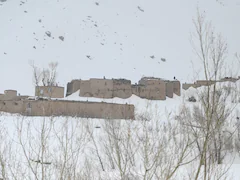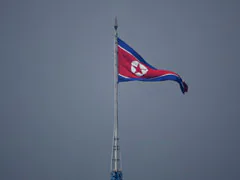Nepal Prime Minister Pushpa Kamal Dahal ‘Prachanda’ Monday severed his Maoist party’s 15-month alliance with the Nepali Congress and forged a coalition with the Communist Party of Nepal-Unified Marxist Leninist (CPN-UML) — which itself had withdrawn support to him last February.
Three ministers — one each from the Maoist Centre, CPN-UML and Rashtriya Swatantra Party — took oath of office and secrecy, marking the takeover by the new alliance. The Jananta Samajbadi Party, led by Upendra Yadav, is also contemplating joining the cabinet.

Prachanda’s Maoist Centre is the third largest party in the 275-member House of Representatives. Nepali Congress, with 89 members, is the largest, followed by CPN-UML, which has 78 seats. The RSP with 21 members stands fourth in strength. CPN-UML is led by one of Prachanda’s fiercest critics, K P Oli.
The coalition of the two big Left parties in Nepal was previously openly supported by China, whereas both India and the US were against it.
There are indications that each party will also have a Deputy PM in the cabinet. The post of Chairman of the Rashtriya Sabha, the Upper House of Parliament, will go to the Maoists as per an eight-point agreement signed by the new coalition leaders Monday.
Soon after the new equation took formal shape, Prachanda accused the Nepali Congress of being a “reactionary force” that was trying to use him.
Nepali Congress leader and former Prime Minister Sher Bahadur Deuba told his party colleagues that he did not expect this “dishonesty” from Prachanda.
The rift between the Maoist Centre and Nepali Congress grew after differences between Nepali Congress leader and Finance Minister Mahat and Prachanda over budget allocation to certain projects. Deuba also wanted his party’s senior leader Krishna Sitaula to be made the Chairman of the National Assembly against Prachanda’s plan to appoint his party’s fellow.
Prachanda said his Maoists are not static forces. “We know when and where to change the current,” he said. In another programme, he said: “Political upheavals will continue as long as I am alive.”
He did not mention his past experiments of allying with Oli. Last February, the CPN-UML withdrew its support to the Prachanda-led government following a rift over backing the main opposition party’s candidate for the presidential poll.
Though efforts for a broader left alliance are underway, there still are many areas where the CPN-Maoists and the CPN-UML have differences.
One crucial area remains adoption of the Transitional Justice Bill in which Maoists want blanket amnesty for its leaders and activists for human right violations during the insurgency from 1996 to 2006. UML is opposed to this.
The change of equations at the centre is likely to cause a change of government in all seven provinces as all of them are coalition governments. The uncertainty has also resulted in the cancellation of a major international event scheduled for March 11 and 12 in Lumbini which would have seen ten Nobel Peace laureates and some heads of state.
“We will wait for a better enabling situation to hold the conference in Buddha’s land,” Lumbini’s chief minister Dilli Bahadur Chadwharay told The Indian Express.
Disclaimer: The copyright of this article belongs to the original author. Reposting this article is solely for the purpose of information dissemination and does not constitute any investment advice. If there is any infringement, please contact us immediately. We will make corrections or deletions as necessary. Thank you.







